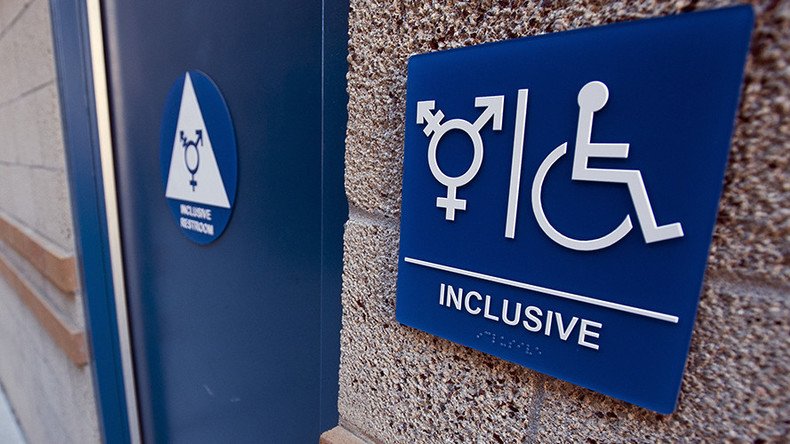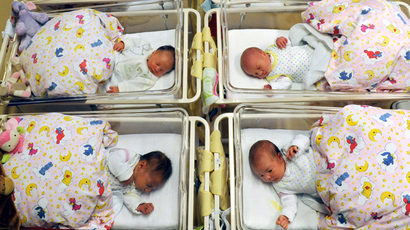Germany must legally recognize ‘third gender’ from birth – top court

Germany’s top court has called on the country’s parliament to legally recognize a ‘third gender’ which allows intersex people to identify as neither male nor female. Germany could become the first European country to allow a third gender on birth certificates.
The current law on civil status discriminates against intersex people as it rules out “the registration of a gender other than ‘male’ or ‘female,’” the Federal Constitutional Court said in a ruling on Wednesday. The German parliament should introduce new provisions into current legislation by December 31, 2018, it said.
The court made its ruling in favor of an appeal brought earlier this year by an intersex person whose name hasn’t been revealed in the German media. The person was registered as female but chromosome analysis showed that the plaintiff was neither male nor female. The person brought the appeal to the top court after several lower courts had ruled against the bid for gender change in the birth register.
“Even if this person chose the option ‘no entry’ [for gender], it would not reflect that the complainant does not see themself as a genderless person, but rather perceives themself as having a gender beyond male or female (sic),” according to the ruling. Civil status is not “a marginal issue,” but rather a “position of a person within the legal system, as stated by the law,” the statement said. The German constitution does not require civil status to be “exclusively binary in terms of gender,” it added.
Germany’s Third Option activist organization has hailed the court’s decision. “We are completely overwhelmed and speechless. That's a small revolution in the gender area,” the group wrote on Twitter.
Beschluss und Leitsatz vom #BVerfG findet ihr hier: https://t.co/xeNsUXSJ7R#dritteoption
— Dritte Option (@DritteOption) November 8, 2017
According to the UN, intersex people are born “with sex characteristics that do not fit typical binary notions of male or female bodies.” Intersex traits can be “visible at birth” while in others “they are not apparent until puberty,” the agency says. Between 0.05 and 1.7 percent of the world population has intersex traits. “The upper estimate is similar to the number of red-haired people,” UN experts say.
READ MORE: Germany to become first European state to allow ‘third gender’ birth certificates
In 2013, Germany became the first European country to allow parents of babies born with no clearly-defined gender characteristics to leave the ‘male/female’ field on birth certificates blank, creating a ‘third sex’ category in the public register. The law prevents parents from making hasty decisions on controversial genital surgeries for their newborns.














